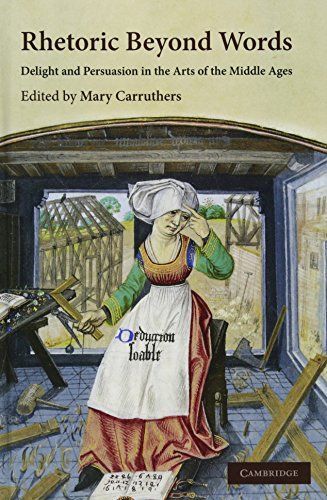
Rhetoric Beyond Words Delight and Persuasion in the Arts of the Middle Ages
In the Middle Ages, liturgies, books, song, architecture and poetry were performed as collaborative activities in which performers and audience together realized their work anew. Essays by leading scholars analyse how the medieval arts invited and delighted in collaborative performances designed to persuade. The essays cast fresh light on subjects ranging from pilgrim processions within Chartres Cathedral, to polyphonic song, and the 'rhetoric of silence' perfected by the Cistercians. Rhetoric is defined broadly in this book to encompass its relationship to its sister arts of music, architecture, and painting, all of which use materials and media in addition to words, sometimes altogether without words. Contributors have concentrated on those aspects of formal rhetoric that are performative in nature, the sound, gesture, and facial expressions of persuasive speech in action. Delivery (performance) is shown to be at the heart of rhetoric, that aspect of it which is indeed beyond words.